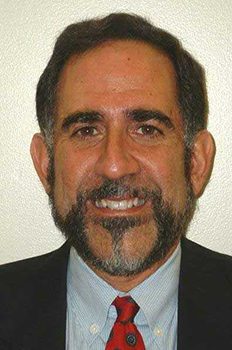October 25, 2018
By Alan Tonelson
Holman Jenkins, Jr. did make one important and useful point in his Wall Street Journal column yesterday on U.S.-China trade policy (which puts him far ahead of most of the punditocracy): He’s absolutely right to call on President Trump to “lay out for the American people just how thoroughly [he] intends to shake up the hugely important U.S.-China economic relationship.”
For weeks, I’ve offered Mr. Trump exactly the same advice – to explain his China end game comprehensively to the American people in a prime-time Oval Office address (though unlike the free trade-obsessed Jenkins, I believe such a speech would boost public support for the Trump China agenda by describing the compelling long-term stakes of what I view as an effort to disengage economically from the PRC – and why they’re more than worth short-term sacrifices).
As for the rest of his column? It’s useful only for reminding Americans how internally contradictory and dangerous (not to mention downright ditzy) the case remains for retaining most of the pre-Trump China policy status quo. Just a few key examples:
>Jenkins insists that rather than pursue a “shakeup” that would amount to “following [Chinese leader] Xi Jinping down the path of seeking foreign scapegoats for failure and heavy-handed intervention at home,” the United States should be “building up our military and alliances.”
But what would be the point of sending more troops and equipment to East Asia while Washington returned to trade policies that have transferred literally trillions of dollars to the Chinese state and helped fuel a rapid military buildup, and investment policies that have ignored the massive export of advanced defense-related knowhow to Chinese entities, and for too long overlooked Chinese acquisitions of similar assets in the American economy?
>According to Jenkins, “China’s avid pursuit of artificial intelligence” shouldn’t worry Western experts because it’s “likely to be employed mainly in destroying the creativity and initiative of its own people.” But capabilities even remotely that massive won’t threaten any major U.S. strategic interests?
>In Jenkins’ view, central to strengthening the U.S. economy sufficiently to meet the Chinese threats he doesn’t laugh off is “dealing with the fiscal challenge of our welfare state.” But good luck with the politics of shrinking social safety nets under an American approach to globalization that kept sending valuable opportunities to earn middle- and even living-wage working- class incomes to China and other penny-wage and regulation-free production and export platforms.
Jenkins isn’t entirely wrong in his overall conclusion that “American prosperity is still made at home.” But the impact of purely domestic reforms is bound to be seriously diluted after decades of Jenkins and his crowd at the Journal (along with most of the rest of the nation’s punditocracy, the pre-Trump Republican party, and the Clinton-ite Democrats) focusing like laser beams on building a truly globalized economy.
And finally – about that headline calling for a “vote on a China Cold War” (even though the article’s body only glancingly mentions the point): During his successful White House run, President Trump made no secret of his determination to overhaul America’s China trade policy. From the standpoint of democratic legitimacy, the Trump 2016 election victory was all the mandate his administration’s China policy measures need.
 ALAN TONELSON
ALAN TONELSON
Alan Tonelson is Founder of the blog RealityChek – www.alantonelson.wordpress.com – which covers a wide range of domestic and international policy issues along with political and social trends.
For 18 years before leaving to launch RealityChek, Tonelson followed the impact of globalization on the U.S. economy, domestic manufacturing, and U.S. national security for the U.S. Business and Industry Council. This national business organization represents nearly 2,000 domestic American companies, most of them small and medium-sized manufacturers.
Alan Tonelson is a regular columnist with Industry Today.
Scott Ellyson, CEO of East West Manufacturing, brings decades of global manufacturing and supply chain leadership to the conversation. In this episode, he shares practical insights on scaling operations, navigating complexity, and building resilient manufacturing networks in an increasingly connected world.